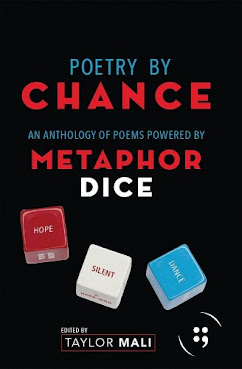
Kids (and grown-ups) love to write in rhyme, but it’s a lot harder than it looks. And it gets even tougher if you’re trying to write nonfiction in rhyme! So, here's an exercise for those interested in writing rhyming picture books. This could also be a fun classroom activity where you ask students to synthesize information learned in a particular math or science or history unit. (I wouldn’t even attempt something like this with students younger than 5th grade, though, and even then, working as a group will be a lot more successful.)
1. Pick a topic you want to write a short poem about. I think I’ll do, um, fences. Yup, fences. Pick something you’ve never written about and don’t actually want to write a whole poem or picture book about. That will make this less stressful!
2. Define your topic in a first line. That’s a place to start. m-w.com tells me a fence is “a structure like a wall built outdoors usually of wood or metal that separates two areas or prevents people or animals from entering or leaving.” OK, I’m going to start with:
A fence is like an outside wall
Because it ends in wall (and, yes, I purposely picked a simplish word that I know will have rhyming possibilities to end the line with), I’m going to brainstorm and/or look up on rhymezone.com words that rhyme with wall that might in some way work into this poem: all, ball, crawl, fall, tall,
3. Add detail in rhyming line.
A fence is like an outside wall:
Wood or metal, short or tall.
4. Decide what else you want to tell about your topic. I like the idea that fences sometimes keep people or things or animals IN, and sometimes keep people or things or animals OUT. So that’s what I want my second half of this poem to convey. In and out are the main elements of that concept, so I’ll check out some rhyme possibilities and see where that leads me:
in – bin, grin, skin, twin, win
out – about, doubt, shout, trout
Well, those lead me pretty much nowhere, at least at first glance. Maybe I’ll try inside and outside, instead:
cried, died, tried, wide
Again, a big, fat nothing.
So, I switch gears. WHAT does it keep inside? Kids and dogs is what I’m mainly thinking of. And what does it keep outside? Strangers, people that might get hurt on whatever’s inside the fence...
While, I was thinking about that, the word divide popped into my head, which would rhyme with inside or outside. So I’m going to play with that.
5. Now try another couplet to show your concept.
A fence’s job is to divide.
A fence keeps beagles safe inside.
I don’t like that because it’s not clear. And the two lines don’t really connect. No cause or effect. Each line is true, but there’s no relationship between them. I’ll try again.
I think that second concept is too big for two short lines. I’m going to simplify to the concept that a fence keeps animals safe.
A fenced-in pasture, green and wide,
keeps grazing cattle safe inside.
6. Read over the four lines you wrote. Congratulations!
A fence is like an outside wall:
Wood or metal, short or tall.
A fenced-in pasture, green and wide,
keeps grazing cattle safe inside.
OK, mine is not going to win any prizes, but it’s a start! I have a basic definition, a bit of detail, and then a single example of one kind of fence and its job. In reading it, I see some possibilities for re-ordering and revising lines. So my second draft is:
Wood or metal, short or tall,
a fence becomes an outside wall.
Rolling meadow, green and wide,
cattle safely fenced inside.
Again, this is just very basic. But doing this exercise can help you build some rhyming/meaning muscles, so it's a great practice activity for any would-be rhymers!
Here are a couple of bits from my first draft of A River Can Be…, which eventually turned into Water Can Be…. You can see this process at work here. It’s just a combination of picking a word I KNOW works for the topic, brainstorming rhymes, and then trying out lines with those other rhymes to see which ones work both for rhyme AND for topic.
And when a word didn’t have enough rhymes to play with (like haven), I tried a synonym that was more rhyme-friendly. I hope you have fun trying your hand at a little bit of rhyme today!
I'd love to see what you come up with! Feel free to share your four lines in the Comments!
Oh! And don't forget to enter our book giveaway of Water Can Be...! by clicking on the Rafflecopter widget in last Monday's post.
--Laura Purdie Salas













21 comments:
Marvelous post Laura. I love this little peek into the way your poem unfolds!
Thanks, Cathy! I used to love that program where you could write a poem (or anything) live, and the program recorded each keystroke. Then you could email it or share it and people could watch your screen as you wrote something, in real time. I miss that.
You break down the process so well, Laura! I can imagine what a hit you are in the classroom. :)
Thanks, Michelle:>) (I never do rhyming poems with kids, though--they write such amazing free verse poems when they are freed from the shackles of rhyme!)
Love seeing this process, Laura, and a peak into your book's evolution. Thanks so much for sharing!
This is a great post, very instructive and useful. Thanks!
Thanks, Laura. I love it when you posts exercises. Count me in!
I just found this article from Twitter. What a great read! I actually do this kind of thing every week where I write game recaps of soccer games in rhyming poetry. Obviously non-fiction stuff! The process look spretty similar, but sometimes I am further constrained by the names and events that are related to the game. It is sometimes so frustrating I want to pull my hair out, but it is always rewarding. And rhymezone.com is my bestest friend EVER! Great post!
Thanks, Marti, Rosi, Charles, and Ryan! I appreciate your thoughts! Ryan--oh, gosh--names are the hardest. I write poems for assessment companies and many are nonfiction-based, and when I have to work in names and places into rhyming, metered poetry--yowza. But...still fun:>)
I don't use rhyme because it frankly scares me, but my students have discovered rhyme zone and even have encouraged me to step out of my comfort zone and try to rhyme. I think I'll try your exercise on a spring flower. May go public with it...or not. Thanks!
Good for you for reaching out of your comfort zone, Margaret! I hope you'll share, but either way, have fun playing with words and rhymes.
This is a great exercise, Laura! I like rhyme, but meter is a real struggle for me. You are a master at it!
Thank you Laura! I'm always looking for writing exercisesto do; especially when I have "writer's block" and need to keep the pen moving.
Thanks, Linda and Kaylyn. It was actually a good exercise for me, too! So much of poetry is just spilling things out and intuitively putting words together--it was fun to kind of examine what my process is. Have fun!
Love your sharing, charing workshop here Laura.
So, we are here in sandy Florida. And so I'm bravely trying out this quickie, using your advice & messing around in these past 10 minutes -
A shell is a snail's home
Keeps it safe as it roams
Take a shell when it is empty
So the shore and waters will have plenty
(I had a previous ending couplet of
A shell taken while alive
Will miss the chance to ...
but could only come up with jive, strive, hive, etc.
that wasn't working!
I'm juiced up for all of today with this exercise.
Many thanks!
I also love this. The way you gave tips for writing in this way by showing your own thinking. I love that you said to name the topic in the first line and your manipulating of words to create rhyme with meaning. Very helpful!
Jan, THANK YOU for diving in and giving this a try. You did great! You could use thrive or survive to rhyme with alive, though I enjoyed the near rhyme of empty/plenty, too! Nice job:>)
And thank you, Deborah, I hope you give this a try and have some fun with it :>)
Anneen, thanks for reading my WWW. How fun to try it out with your daughter. While it's not necessarily easy, it's completely fun if you just look at it as a word game--no pressure:>)
I want to re-read this post a few times! I am a beginning poet just getting my feet wet in the rhyme pond.
Hey, hey dear Laura! Your try-this-way into a rhyme idea is just as clear
a 2nd time around.
It sounded familiar when the link popped up in Christy's visit
with you at our Oct. 9, 2019 Group Blog.
Thank you for always surrounding us with cool tools.
Jan Godown Annino/Bookseedstudio
Thanks for visiting, Jan. Sorry you had to wait for your comment to be approved because this post was published so long ago. But I'm glad it's still relevant!
Post a Comment